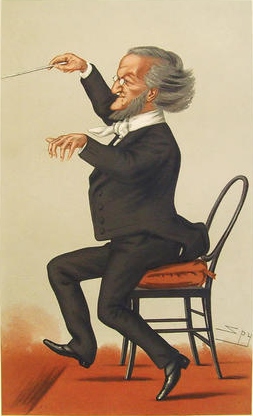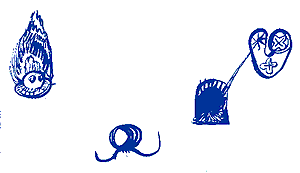Search results for "herbert lomas/www.booksfromfinland.fi/2004/09/no-need-to-go-anywhere"
Plain sailing
31 March 1996 | Archives online, Fiction, Prose
An extract from Alastalon salissa (‘In Alastalo’s parlour’, 1933). Introduction by Kai Laitinen
A letter from the translator:
Dear Editors,
Reluctantly (I really have tried) I have been driven to conclude that Alastalon salissa is untranslatable, except perhaps by a fanatical Volter Kilpi enthusiast who is prepared to devote a lifetime to it. To mention only one of the difficulties, there is no English equivalent to the style of the Finnish ‘proverbs’ (real or imaginary) with which the main character Alastalo’s thoughts are so thickly larded. Add to this the richness and, yes, eccentricity, of Kilpi’s vocabulary, and the unfamiliarity of much of the subject-matter, centred as it is on the interests of a sea going community that hardly exists any longer, even on the islands, and you have a text that is full of pitfalls for the translator. As for the humour, I’m sorry to say that it depends so much on the idiom and presentation that it doesn’t come over at all. If I did any more, I’m afraid it would just have to be a laborious paraphrase, and I don’t think I’m capable of making it effective, or even readable, in English.
Apart from that, although I’m very grateful for your explanations of the many unfamiliar words and phrases, I’m very unwilling to commit myself to the translation of any of them on the basis of a mere ‘gloss’ (technical word): I need to know the associations, and possible sound-echoes, of every one of them before I can be sure of getting it right. And getting it right affects the rhythm of every sentence: it’s not just a matter of filling in blanks with ‘equivalents’ provided by someone else.
I’ve no objection to your using my version of the opening pages. If you decide to follow it with some kind of comment, do borrow, if you need to, from my remarks above, giving the translator’s point of view. Sorry to have failed you so badly.
Yours, David Barrett More…
Misery me
Extracts from the collection of short prose, Mielensäpahoittaja (‘Taking offense’, WSOY, 2010)
Past pushing up daisies
Well, yeah, so I took offense when the doctor said that considering my age I’m in tip-top shape. His theory was that my 25-kilometre ski circuits would keep an old coot like me in shape, if they didn’t kill me first. He said if I were to start just sitting on the couch and waiting, then the Reaper would be on my back in no time.
I don’t ski for my health. I ski because it’s pretty in the forest, and when a body is sweating he doesn’t think a whole lot. More…
Out of this world
31 December 1996 | Archives online, Fiction, Prose
Extracts from the novel Virkamatka (‘Business travel’, Otava, 1996). Introduction by Jyrki Kiiskinen
I spent a couple of weeks alone at home that summer. My brother was at camp and my father on a business trip. Bored one rainy day, I opened up their last game on the computer. They had been going on about it for weeks.
I began from the beginning, A splendid start: texts backed by imaginative visions, Then darkness. In the middle of it a gold-coloured, glimmering dot. Nothing else. I waited for a long time. Nothing else, I waited. Nothing. Then I pressed the computer’s space-bar. The dot exploded and the explosion filled the entire screen. From its centre swarmed familiar patterns, Diagrams of atomic nuclei, electrons, radiation. More…
Adam, Eve and vegetarianism
30 September 2006 | Archives online, Fiction, Prose
Short prose from En god Havanna. Besläktad (‘A good Havana. Kith and kin’, Söderströms, 2006). Introduction by Bror Rönnholm
Ode
My alter ego has relatives who have bad teeth and the names of Greek gods. They live in ramshackle houses in suburbs which the taxi drivers can’t find, dangerous ex-no man’s lands in a rapid metastasis into concrete. They are wild and threatened with extinction, they are Finland-Swedish working class. Disorganised, of course they’re disorganised, my alter ego’s relatives never organise themselves. They don’t form part of any community other than their own. They go to sea and they breed, they buy shuteye dolls in whore ports and return home in grand style, always at night, always one surprising night when no one is expecting them. The women raise a cry of joy, the children go leaping barefoot, and the dog, which is called Zeus-Håkan, is quite beside himself. There’s a party. There’s no school that day. At twilight the women travel to their jobs in key factories and warehouses. When they come home the party continues and in the outside toilet there are new pictures of new places. My alter ego’s relatives have dyed hair and prominent busts in tight-fitting silver nylon jumpers. They pay for my alter ego’s father’s education so he can become middle class. They are proud of him. When we go to visit them they dress up. They clap their hands and the nail varnish peels as they loudly, just a shade too loudly, shout OH, oh splendid, such fine guests! My alter ego’s father is grateful and confused. He has long ago paid it back, paid the money back, and now what’s left is only what cannot be repaid.
With the passage of the years my alter ego’s working-class relatives are disappearing from my alter ego’s life. I miss them. More…
Six letters
31 March 1986 | Archives online, Fiction, Prose
From Tainaron (1985). Introduction by Soila Lehtonen
The whirr of the wheel
Letter II
I awoke in the night to sounds of rattling and tinkling from my kitchen alcove. Tainaron, as you probably know, lies within a volcanic zone. The experts say that we have now entered a period in which a great upheaval can be expected, one so devastating that it may destroy the city entirely.
But what of that? You need not imagine that it makes any difference to the Tainaronians’ way of living. The tremors during the night are forgotten, and in the dazzle of the morning, as I take my customary short cut across the market square, the open fruit-baskets glow with their honeyed haze, and the pavement underfoot is eternal again.
And in the evening I gaze at the huge Wheel of Earth, set on its hill and backed by thundercloud, with circumference, poles and axis pricked out in thousands of starry lights. The Wheel of Earth, the Wheel of Fortune… Sometimes its turning holds me fascinated, and even in my sleep I seem to hear the wheel’s unceasing hum, the voice of Tainaron itself. More…
The strike
13 December 1980 | Archives online, Fiction, Prose
An extract from Täällä Pohjantähden alla (‘Here beneath the North Star’), chapter 3, volume II. Introduction by Juhani Niemi
With banners held aloft, the procession of strikers moved towards the Manor. It was known that the strikebreakers had arrived early and that the district constable was with them. Just before reaching the field the marchers struck up a song, and they went on singing after they had halted at the edge of the field. The men at work in the field went on with their tasks, casting occasional furtive glances at the strikers. Nearest to the road stood the Baron and the constable. Uolevi Yllö’s head was bandaged: someone had attacked him with a bicycle chain as he left the field at dusk the evening before. Arvo Töyry was in the field too, the landowners having agreed that those who had got their own harrowing and sowing done should lend the others a hand. Not all the men in the field were known to the strikers. The son of the district doctor was there they noticed, and the sons of several of the village gentry, as well as the men from the smallholdings. More…
Emotional transgressions
31 December 1985 | Archives online, Fiction, Prose
Three extracts from the novel Harjunpää ja rakkauden lait (‘Harjunpaa and the laws of love’). Introduction by Risto Hannula
It was a few minutes to two, and Harjunpää was still awake, lying so close to Elisa that he could feel her warmth. He kept his eyes open, staring into the night through the crack between curtains. Once again the boiler of the central heating plant started up, and the smoke began to rise like a stiff column in the cold. Another fifteen minutes had passed, and morning was a quarter of an hour closer. He squeezed his eyes shut and tried to concentrate on Elisa’s breathing and the sleepy snuffling of the girls, but his thoughts still wouldn’t leave him in peace. Inexplicably, he felt there was something wrong, that the darkness exuded some kind of threat, that he’d left something undone or had made some kind of mistake.
He swung his feet onto the floor and got up as quietly as he could. But all his care was wasted, he should have known that.
‘What’s the matter?’ Elisa asked sleepily.
‘I just can’t get to sleep.’
‘Again … ‘
‘I can’t help it. I wonder if there’s a bottle of brew left.’
‘Sure. But listen …’
Pipsa turned over in her crib, rattling the sides, groped around a bit and began to suck her pacifier so you could hear the quiet sucking noises.
‘Yeah?’
‘Maybe you could see a doctor. You could ask for some mild … ‘ More…
Elitist versus pop?
8 August 2013 | Letter from the Editors

An elitist of his time? A caricature of Richard Wagner by Leslie Ward, published in Vanity Fair in 1877 (caption read ‘The Music of the Future’). Picture: Wikimedia
The old phrase ‘art for art’s sake’ has begun to sound like an appeal instead of an bohemian creed, without any negative ambiguity. Please let art be created for art’s sake!
In our times of neo-liberal ideologies, the criteria for assessing art include its capacity to generate profits to creative industries, to have export value, to be of assistance to business in general. But art, in essence, serves no ideology.
Technology now allows us to be more entertained than ever before, if we so choose. Art and entertainment alike come to us by the use of various devices. What has often been called ‘elitist’ art – opera, modern music, ballet – can be enjoyed lying on the sofa in the home. Money is not an obstacle.
Art, too needs money, of course: orchestras, theatres, training of artists and artists themselves need subsidies from society. Entertainment is by nature profitable business, as it attracts and involves large paying audiences. Smaller audiences want to listen to classical music, read books and see films that are not made solely in order to bring in as much money as possible. But why should these forms of art be called ‘elitist’? More…
Head in a cloud
27 May 2011 | Articles, Non-fiction
Thinking, reading, writing, buying… Teemu Manninen explores the new freedoms, literal and poetic, offered by cloud computing, where what you can do is no longer limited by what you happen to have on your computer

High in the sky: cumulus clouds. Photo: Michael Jastremski, Wikimedia
I’m sitting in a rocking chair on the porch of a cottage by a lake. My fingers tap and slide on the surface of a black glass panel, a kind of instrument used in the composing of literature. Each tap equals a letter, a series of taps equals a word, a symphony of taps becomes a paragraph, a paragraph an essay.
The glass panel remembers these letters and words and the writings they become, and knows them by their names, but it could also record anything I see or hear. I could even talk to it and it would understand my commands, as if some nether spirit were captured inside, a magic genie slaved to do my bidding. More…
The mistake
30 September 2008 | Archives online, Fiction, Prose
A short story (‘Erehdys’, 1956, last published in the collection Lukittu laatikko ja muita kertomuksia, ‘A locked box and other stories’, WSOY, 2003). Introduction by Markéta Hejkalová
My feet are smarter than my head. On an April night in Naples they carried me along the Via Roma past the royal palace and the giant illuminated dome of the church. The people of Naples walked up and down the immortal street like the cool of evening, looking at each other and at the brightly lit display windows. I had nothing against that, but at the comer of Via San Brigida my feet turned to the right. The snow-cold breath of my homeland radiated toward me from Saint Bridget Street.
When I had turned the corner I could see a restaurant window still lit, with its fruit baskets, dead fish and red lobsters. The most hurried diners had already finished their meals. I stepped into the long dining room of the restaurant, the sawdust on the floor stuck to my shoes, a frighteningly icy stare pierced me from behind the counter, but I gathered my courage and whispered bravely, ‘Buona sera, signora.’ More…
No longer I:
30 September 2001 | Fiction, poetry
From Voittokulku (‘Triumphal march’, Tammi, 2001). Illustrations by Jukka Korkeila
Tiamat [Bloody moon]
The goat’s cheese that I have just succeeded in swallowing is now grazing in my gullet before its last metamorphosis. Soon it will be washed away into the endless system of tubing, the network of veins that proliferates beneath the paving stones. The body expels the waste and another receives it. Some people believe they are different bodies, but on thorough examination it is clear that they are both part of one and the same liquid-channeling system. I speak of a body which is a city, of liquids which surge beneath the streets, of subterranean waters. I lift a manhole cover and behold a sea which you could never dream of. The sea is a living creature and knows me better than I do myself. When I close my eyes, I see a crayfish that climbs out of the water and stretches out its pincers toward a bloody moon. What does it mean? Of that I do not wish to speak a single word.

Between two loves
31 December 1999 | Archives online, Fiction, Prose
From Se tapahtui täällä (’It happened here’, Otava, 1999). Introduction and interview by Nina Paavolainen
She thought of the period between two loves as a spacious room, full of light, outside whose windows the seasons change unhurriedly. On the walls are reflections of the morning light. There is the sound of piano music; and the number of rooms grows. Somewhere, far away, a young girl, dressed in white, is at the piano; the wind fans the curtains. Slow awakening, the soft rocking of time, the sound of bare feet on a wooden floor. In the air there is the scent of flowers, apples, and the gentle morning breeze, and perfume, and the scent of clean, ironed clothes and furniture wax. The afternoon shadows are long and cool; the pages of a book rustle slowly. Now the music pauses.
It’s only me
Extracts from the autobiographical novel Pienin yhteinen jaettava (‘Lowest common multiple’, WSOY, 1998)
The weather had not yet broken, although it was September; I had been away for two weeks.
The linden trees of the North Shore drooped their dusty leaves in a tired and melancholy way. Even the new windows were already sticky and dusty. The flat was covered in thick, stiff plastic sheeting. The chairs, the books, the Tibetan tankas and the negro orchestra I had bought in Stockholm glimmered beneath the plastic ice like salvage from the Titanic.
The windows had been replaced while I had been in Korea.
I unpacked the gifts from my suitcase. Lost in the sea of plastic, the little Korean objects looked shipwrecked and ridiculous.
My temperature was rising; it had been troubling me for more than a week.
I smiled and said something, not mentioning my temperature.
It was time to be a mother again, and a life-companion.
And a daughter…. More…

